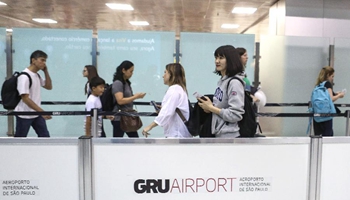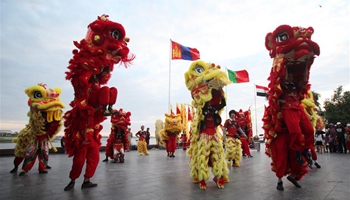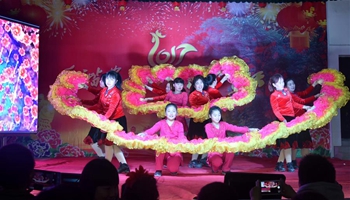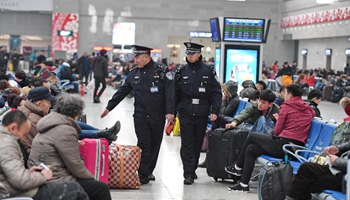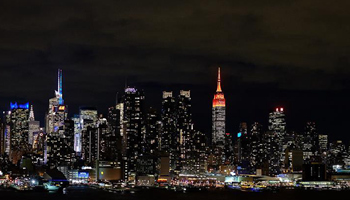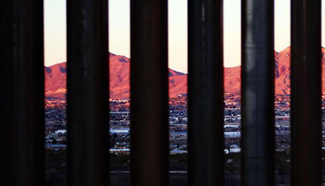by Grandesso Federico
BRUSSELS, Jan. 27 (Xinhua) -- China and many developing countries in Asia are ready to take the driving seat of globalization, while the Western world is closing on itself, a visiting Italian scholar told Xinhua in an recent interview.
The world seems to be upside down. "The West, Europe included, is closing on itself, becoming increasingly weary of free trade, transnational alliances, regional organizations and globalization," said Francesco Mancini, assistant dean and visiting associate professor at Lee Kuan Yew School of Public Policy in Singapore.
"The reset button for the future, instead, has been pressed in Davos by Chinese President Xi Jinping, whose speech could have been pronounced by a Western leader in the 1990s," said the associate professor at Columbia University's School of International and Public Affairs.
According to Mancini, this crucial change was not taking place last June when the British people decided to withdraw from the European Union, and neither in November, when Americans voted to "make America great again."
"Those are nostalgic attempts to go back to an illusionary glorious past, a world in which some feel more comfortable, but it does not exist any more," the Italian scholar explained.
In this regard, Xi underlined in his Davos speech that the world must remain committed to developing global free trade and investment, promote trade and investment liberalization through opening-up, and rejecting protectionism, Mancini said.
"Meanwhile, China, which engaged in globalization on its own terms, managed to accomplished what no other developing countries got close to it: lifting more than 600 million people out of poverty," the scholar said.
The Italian professor noted that Xi reiterated his belief in win-win solutions to global problems.
"President Xi made it clear that the global governance system is inadequate in terms of representation and inclusiveness, for which he meant that China needs more voice in the global institutions. On this, it is hard to disagree," Mancini added.
Mancini stressed how Xi emphasized that countries must develop according to their own conditions. Each country should be allowed to follow its own national development path and governance.
"In other words, China is working towards a global order where different ideologies can coexist. History has just restarted and not along the lines of liberal order," he said.
"There is the hope that this notion of globalization, which embraces cooperation for global issues like fighting climate change, trade and economic development, is grounded in the respect for national values, domestic affairs and borders, is also what Europe needs to regain its enthusiasm for a more united world," Mancini concluded.




